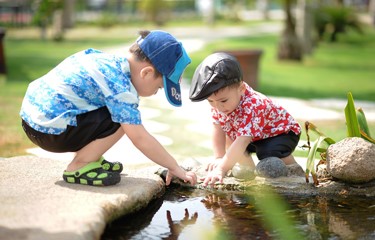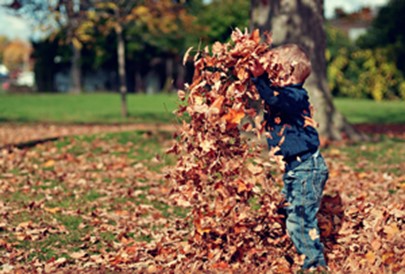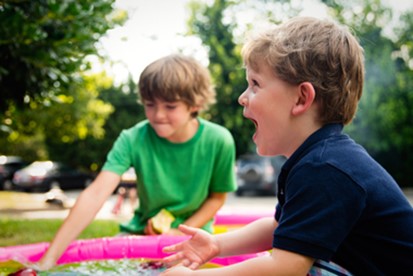Nature and Nurture: Why Kids Need to Play Outside
 Playing outside isn’t just about getting fresh air and benefiting from physical activity. When kids play outside, they improve the growth and development of the brain, body and intellect. Importantly, playing outdoors has a positive impact on a child’s mental well-being, learning and development. Playing outside is fun, exciting and important to children in lots of ways. Here’s why kids should be encouraged to play outdoors.
Playing outside isn’t just about getting fresh air and benefiting from physical activity. When kids play outside, they improve the growth and development of the brain, body and intellect. Importantly, playing outdoors has a positive impact on a child’s mental well-being, learning and development. Playing outside is fun, exciting and important to children in lots of ways. Here’s why kids should be encouraged to play outdoors.
Learning to assess and take risks
Kids who have access to nature are better learners and more in-tune with growth mindset. An increasing number of schools across the UK are embracing the work of Carol Dweck to develop thinking skills and self-awareness. Growth mindset is based on the belief that intelligence can be learned. The outdoors encourages growth mindset and offers children an opportunity to try something that is just out of reach. Climbing that tree, reaching the next stepping stone to cross a stream, going higher on the swing and so on, can all help children to engage with and assess risks.
Outdoor learning equips children with wisdom they will need to face challenges, difficulties and mistakes they will encounter in later life. Being able to assess and take risks is an essential skill in life.
Break the cycle of excessive screen time
Children who spend more than seven hours a day on screens have been shown to experience premature thinning of the brain cortex. This is the result of a new and ongoing study on adolescent brain cognitive development in the US funded by the National Institutes of Health (NIH). The study is following 11,000 children over the course of a decade and the first brain scans have concluded extensive screen-time does have a physiological effect on the body. In addition, it was found that children who spend more than 2 hours a day on screens (including smartphones, video games and tablets) achieved lower scores on tests focused on language and thinking skills. There are many beneficial reasons children need to play outside more, but perhaps the most pressing one is to break the cycle of screen time that is all to common amongst younger generations. Excessive screen-time is linked to the rise in obesity, attention deficit disorder and depression.

Improve physical health
Most kids growing up in the 1950s and 1960s weren’t obese. But many more are now. Why? Kids are spending way too much time sitting down indoors looking at screens. Replacing sugars with sweeteners (also controversial), and reducing the size of pizzas and burgers isn’t the answer. Running around more freely outside is. Numerous studies show that with outdoor play children burn more calories. Playing outside helps to prevent obesity, and strengthens bones and muscles. Playing outdoors makes physically healthier children.
Deal with nature deficit
According to environmental charity, Friends of the Earth, many of us exist in a nature deficit and are forgetting how important nature is in our busy lives. Children have a natural affinity with nature and regular contact with nature boosts their development. It is our responsibility as parents to ensure our children keep connected to nature. We must rely on them to preserve the future environment and not destroy it. Children who are aware of the environment are more likely to care for it. Richard Louv has written extensively on the subject of nature deficit, linking it to some of today’s most disturbing childhood trends. Louv argues that the alienation of children from nature is damaging our kids’ physical, emotional and spiritual growth.

Develop social skills
Outdoor play (as opposed to screen time) offers children much more opportunity to collaborate and develop social skills. Playing outside stimulates the imagination and requires children to communicate with each other. It gives kids the chance to practice taking turns, help each other, agree rules, negotiate and work and communicate together. It also helps children to become more independent.
Provides a sensory experience
There is so much for a child to see and experience outside. Nature is a stimulating and multi-sensory environment. As well as the obvious physical benefits of children running, skipping and hopping outside, there is so much for kids to explore in nature. Playing in nature encourages curiosity which is fundamental to learning. Sensory play, both in the classroom and outside, has huge benefits to a child’s development, including language development, cognitive growth, motor skills, problem solving skills and social interaction. Nature provides a very different kind of stimulation – hearing, seeing, smelling and touching the natural world increases the richness of a child’s experience. Most of all playing outdoors is fun for the whole family.